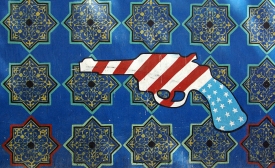foreign policy
The J. William Fulbright College of Arts and Sciences and the Diane D. Blair Center of Southern Politics and Society will host 17 scholars from around the world Sept. 1-2 for the "J. William Fulbright in International Perspective: Liberal Internationalism and U.S. Global Influence" conference. During the two-day meeting, participants will discuss Fulbright's foreign policy legacy.
“India is set to reap large-scale benefits from its new foreign policy of global alignment,” Goyal said at a function, to mark the Universal Brotherhood Day, on Saturday. “The shift from non-alignment to global alignment was based on long-term vision and helped India gain greater acceptability in the world,” he said.
Indicating a possible shift in government policy toward “emerging” Jewish communities around the world, Israel’s Ministry of the Diaspora has created a new committee to present recommendations on what it defines as “groups with ties to the Jewish people.”
Indeed, the annual conference of Ethiopian diplomats is instrumental to further raise the diplomats' role in the overall nation building process and to exchange valuable experiences helpful in enhancing the image of the country and taking the level of the diplomatic services to new heights.

Reprinted from the CPD Blog by Sohaela Amiri (Oct 7, 2014)
Iran's approach to foreign policy changed dramatically after Hassan Rouhani was elected President of Iran in 2013. The most serious and comprehensive negotiations regarding Iran’s nuclear program started in 2013 between Iran and six world powers including the United States. An interim agreement was reached on November 24, 2013. A framework agreement was reached on April 2, 2015. And finally, the comprehensive deal was reached on July 14, 2015 to ensure that Iran’s potential pathway to developing a nuclear weapon is blocked.







